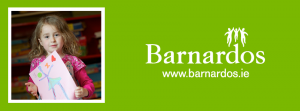
By Ann Marie Foley - 05 January, 2017

Barnardos supported 8 per cent more children in 2016 than in 2015.
The children’s charity stated that it helped more than 12,304 children and families during the first nine months of 2016 compared with 11,718 during the first nine months of 2015.
“It is clear to us the economic recovery isn’t being felt by all as we are supporting parents who are under huge strain to meet the needs of their children because of the absence of appropriate quality public services,” said Fergus Finlay, CEO, Barnardos.

Fergus Finlay, CEO, Barnardos
He stated that the Government’s main policy for young people – Better Outcomes, Brighter Futures 2014–2020 – has shown little visible impact in the first two years of its existence.
“Its intention to lift 70,000 children out of poverty by 2020 has had to be altered upwards to 96,000 in light of the greater number of children living in consistent poverty,” he said.
According to the Department of Social Inclusion, people who live in consistent poverty are those with an income below 60 per cent of median income and who are deprived of two or more goods or services considered essential for a basic standard of living, for example, who do not eat meals with meat every second day or have a warm waterproof coat.
Barnardos has seen that housing is a major problem for the people it helps. For example, one couple described how nine people plus a baby are living in a three bedroom house and the local corporation has stated that it will be “years” before proper accommodation becomes available.
Parents also find that education is not “free” in Ireland and one couple said it cost them €2,000 to send their children back to school. Books, uniforms, shoes, gym gear and the so called ‘voluntary contribution’ all add up.
Parents of six children going to school stated that their son in fifth year needed €400 for books alone. They could not afford this and he was afraid to go to school because he did not have his school books.
 Another couple said that their two secondary school children needed €350 each for books. The principal suggested a payment of €70 per week but the parents could only afford €20 per week. The books were not given to the students until the full amount had been paid.
Another couple said that their two secondary school children needed €350 each for books. The principal suggested a payment of €70 per week but the parents could only afford €20 per week. The books were not given to the students until the full amount had been paid.
“It is a challenging time for thousands of families in Ireland today,” stated June Tinsley, Head of Advocacy, Barnardos.
She explained that the charity was encouraged by some steps taken in Budget 2017, but many children’s public services are under-resourced or absent.
“It is crucial that 2017 sees quicker implementation of the varied recommendations of the Government’s own framework so that children can achieve better outcomes and experience brighter futures,” she said.
The numbers of people that Barnardos helped also increased in previous years. In 2015 the organisation helped 11,718 people, which was 340 more than in 2014, when 11,378 were assisted.
In July 2016 Social Justice Ireland (SJI) released figures stating that 750,000 people were living in poverty in Ireland on under €218 a week.
SJI also found that:
– The percentage of adults living in poverty who are employed is 18 per cent – these are called ‘the working poor’.
– The top 10 per cent of households receives 24 per cent of Ireland’s total disposable income while the bottom 10 per cent of households only receives 3 per cent.
– Almost one in five children live in households with incomes below the poverty line.
– Most weekly social assistance rates paid to single people are €30 below the poverty line.
In November 2015 the Central Statistics Office (CSO) income survey showed that nearly 140,000 children were living in consistent poverty. The Survey on Income and Living Conditions for 2014 showed that 8 per cent of the population was in consistent poverty, with the highest rate among unemployed people at 22.6 per cent.